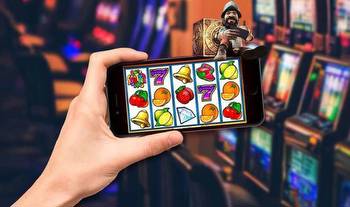Online gaming sites banking on HTML5
If you are of a certain age, your memories of slot machines might be mechanical one-armed bandits with reels that spun around clunkily. There was one line you could use to match the symbols – typically fruit like lemons and cherries – and win a prize.
The old fruit machines are long gone, consigned to the gambling museum. As digital technology evolved, slot games became more elaborate; then everything changed when the internet came along.
Suddenly, the demand for online entertainment at home skyrocketed. We wanted games, we wanted to stream videos, we wanted to tell each other our lives on social media, and we wanted to gamble.
Online gaming became so lucrative that some of the best developers joined the gaming and gambling software houses to develop ever more sophisticated titles. As the noughties moved into the 2010s, those slot games took on a whole new look. Video slots, incredible sounds, big jackpots (with slots linked to a network), and stunning features were out of this world.
Casino table games improved no end, too, with great graphics and speed. Security was beefed up, sites became licensed with regulatory authorities, and everybody was happy.
Well, almost everybody. While playing these fantastic games at home on your desktop computer or laptop was all well and good, another technology advance was rapidly taking over our lives: the smartphone.
We do everything on it – shop, take photos and videos, check the weather, and goodness knows what else. Oh, and we can even ring people up and speak to them. The advent of the smartphone, both Apple devices, and Android, presented a new challenge to the online gambling sector. The boffins needed to serve up games where the customers were lingering – and that was on their phones.
An initial, if not an easy win, was to develop an in-house app. All the casino games and slots could be housed in an app. While that was all well and good, it did require the customer to find the app firstly, and secondly, bother to download it.
What the gaming industry needed was an advancement to let the public play their games in their phone’s usual browser, without the need to download anything at all. The problem was if you went, for example, to a casino website and tried to play a slot or open a table game like blackjack, it would not resize to fit on the screen. It would be clunky, look awful, and generally, be such a bad experience that the user would be off faster than a greyhound out of a trap.
Well, the cavalry soon came rushing to the rescue in the shape of HTML5 technology. This new concept allows companies to create new elements, standards, and behaviors into their platforms, allowing for powerful, fast, smooth, dynamic, and, above all, mobile-friendly experiences.
It was a tremendous boost to gaming companies. One of the latest to relaunch in HTML5 was Replay Poker, the free-to-play poker site. Its new software, launched this year, means you can now play poker in your browser.
The results are super slick and mean players, like those at other casino or gaming sites that have launched in HTML5, can enjoy a whole new responsive experience on their smartphones, wherever they are, welcoming a new audience of devotees in the process.
HTML5 is not just for mobile use. Those still accessing sites like Replay via “traditional” means, i.e. laptops or desktops, experience a much more rich and smooth gaming session.
The HTML5 concept made such a difference to web users and gamers, mobile or otherwise, that the mind boggles at what might come along next. Virtual Reality gaming is yet to go mainstream; blockchain technology can decentralize everything, making it more secure but is also not exactly overrunning all we do. Is one of these technologies a slow burner about to explode? Or is another, as yet untapped leap forward about to revolutionize everything we do and play online?
The fact is that HTML5 is not going anywhere in the meantime. Such is the improvement it brings to the online experience, it can only get better as developers find new ways to exploit its capabilities. Gaming has never been so good online – if you haven’t tried it, it’s worth exploring just to see how far things have come since the days of those old-fashioned one-armed bandits.


































